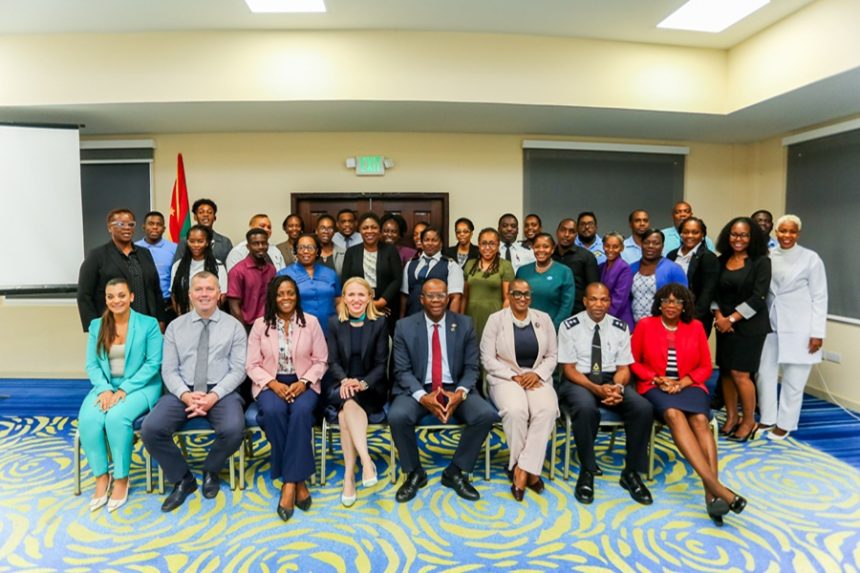The Organisation of Eastern Caribbean States (OECS) Commission, in partnership with the United Nations Institute of Training and Research (UNITAR), hosted a workshop titled “Use of Administrative Data for the Production of Official Statistics in Grenada”. The activity was hosted from June 11 to 13, 2025, as the first initiative of the partnership between the OECS Commission and UNITAR. Stakeholders from Grenada’s National Statistical System (NSS), mainly producers of administrative data participated in this workshop.
The workshop had three main objectives:
Develop and test an approach for using administrative data to produce migration and environment indicators.
Formalise engagement and partnership with key holders of administrative data, and design a framework for sustainable collaboration.
Enhance data quality by improving existing processes and procedures in collaboration with administrative data holders and the CSO.
This pilot focuses on two critical statistical domains: international migration and environment and climate change, both areas of growing regional and global importance. The initiative which is led by the OECSC under the World Bank-funded OECS Data for Decision Making project is also supported by the United Nations Statistics Division (UNSD), and the Economic Commission for Latin America and the Caribbean (ECLAC) Sub-regional Office for the Caribbean.
At the opening ceremony of the workshop, Project Manager of the OECS Data for Decision Making Project, Sherma Beroo, delivered introductory remarks focusing on the transformation that the exercise will provide:
“This was aimed at designing an experiment that rigorously tests an approach for strengthening and formalising the statistics office’s engagement with administrative data. It has become essential in our efforts to enhance the data quality and produce new indicators critical for national development. This endeavour is important for the enhancement of statistics in the region.”
Elena Proden, technical team lead and statistician, UNITAR highlighted the pilot’s opportunities for upskilling on an international scale:
“Using international standards and guidelines can be of great help not only because the resulting statistics will allow countries to compare their progress to other countries, but also because the development of international standards draws on a range of experiences and best practices and often offers shortcuts to many NSOs on addressing their data gaps most effectively. They, of course, need to be adaptable.”
Honourable Lennox Andrews, Minister for Economic Development, Planning, Tourism and ICT, Creative Economy, Agriculture and Lands in Grenada, attended the opening ceremony, displaying his support for the NSO participants and the work they would embark on that week.
He said, “As the minister for economic development, I don’t want to make decisions that are romantic and sentimental and based on my feelings. I want to make decisions that are based on numbers and statistics. Statistics must inform what we do as a government in our effort to transform the economy and to provide a better life for our people.”
The workshop generated several key outcomes and tangible outputs that will guide the ongoing pilot project:
Mapping of Administrative Data Sources: Participants collectively identified and assessed available administrative data relevant to migration and environmental statistics.
Initial Data-Sharing Frameworks: Draft protocols were proposed to formalise cooperation between CSO and administrative data holders, ensuring data privacy and clarity of roles.
Capacity Building and Knowledge Exchange: Local stakeholders gained practical insights into international best practices, with technical guidance provided by OECS, UNITAR, UNSD, and ECLAC experts.
Preliminary Indicator List: A draft list of potential new indicators was developed, including those aligned with the Sustainable Development Goals (SDGs), particularly around climate resilience and population movement.
Action Plan for Next Steps: A roadmap was outlined for continued technical assistance, capacity building, and data processing activities in the coming months.
These outcomes mark a significant step toward Grenada’s long-term objective of integrating administrative data into its national statistical framework to enhance efficiency and relevance.



